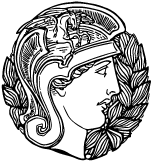Hail Caesar
The Gallic War is Caesar’s own account of his two invasions of Britain and of conquering most of what is today France, Belgium, and Switzerland. The Civil War describes the conflict in the following year which, after the death of his chief rival, Pompey, and the defeat of Pompey’s heirs and supporters, resulted in Caesar’s emergence as the sole power in Rome. Accompanying Caesar’s own commentaries are three short but essential additional works, known to us as the Alexandrian War, the African War, and the Spanish War. These were written by three unknown authors who were clearly eyewitnesses and probably Roman officers. Caesar’s clear and direct prose provides a riveting depiction of ancient warfare and, not incidentally, a persuasive portrait for the Roman people (and for us) of Caesar himself as a brilliant, moderate, and effective leader – an image that was key to his final success. Kurt A. Raaflaub’s masterful translation skillfully brings out the clarity and elegance of Caesar’s style, and this, together with such Landmark features as maps, detailed annotations, appendices, and illustrations, will provide every reader from lay person to scholar with a rewarding and enjoyable experience.
--
Kurt A. Raaflaub came to the US from Switzerland via an assistant professorship at the Free University in Berlin. He taught at Brown University from 1978 to 2009, with a partial exception in 1992–2000, when he was co-director of the Center for Hellenic Studies in Washigton D.C. His research has focused on the social, political, and intellectual history of ancient Greece and the Roman republic, on ancient war and peace, and on the comparative history of the ancient world. His book publications include The Discovery of Freedom in Ancient Greece (2004), Origins of Democracy in Ancient Greece (co-authored, 2007), War and Peace in the Ancient World (edited, 2007), Epic and History (co-edited, 2010), The Adventure of the Human Intellect: Self, Society, and the Divine in Ancient World Cultures (edited, 2016), and The Landmark Julius Caesar (2017, a new user-friendly translation of the entire corpus of Julius Caesar’s works).







